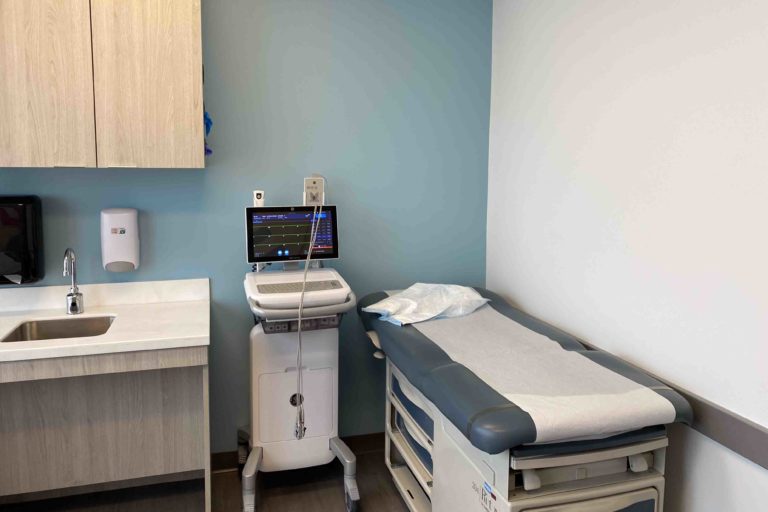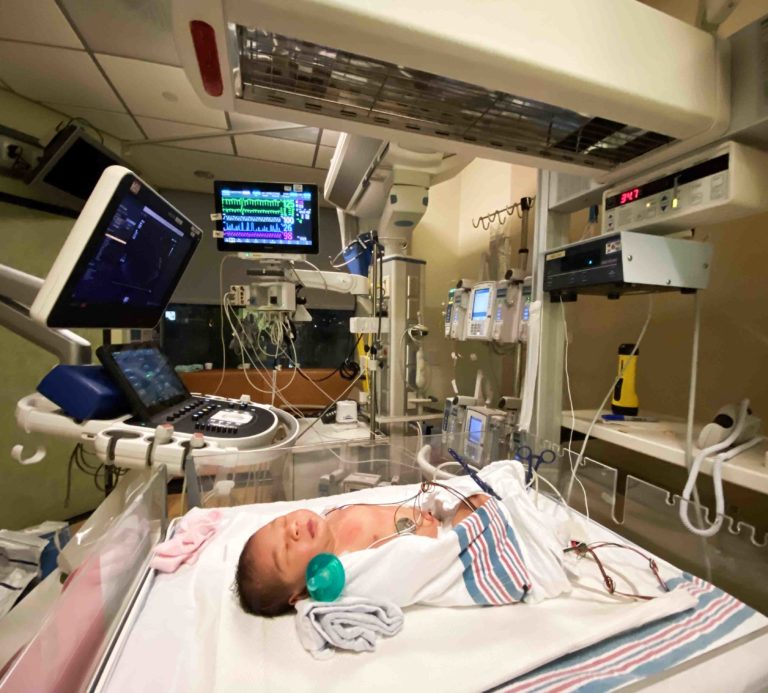Heart Month 2024: Headway and Hope for CHD Awareness
Hasta luego Heart Month and hello greater CHD Awareness! Is Heart Month ever actually over? Not likely if you’re a CHD family, you may be all about the hearts and CHD awareness all year long. And I’m here for it.
I wanted to take some time to reflect on Heart Month 2024. Notable Congenital Heart Disease improvements, current Congenital Heart Defect research, and increasing CHD awareness efforts. Also, hope. We have to hold on to hope.
How Heart Month Began
In December 1963, Congress approved a request “that the President issue an annual proclamation designating February as ‘American Heart Month.’” 1964 was the first American Heart Month, declared by President Lyndon B. Johnson. Every year since then, the presidential office releases a proclamation to officially declare February as American Heart Month. 2024 marked the 60th year.
“Each year, heart disease takes the lives of nearly 700,000 Americans. It is the leading cause of death in our country. Too many of us are familiar with the pain of losing a loved one to a heart attack, stroke, or coronary heart disease. There is still hope, however: With the adoption of a healthy lifestyle and access to good health care, these conditions can often be prevented and lives can be saved.”
– Joseph R. Biden Jr., President of the United States of America

Why Heart Month Matters for CHD Awareness
The American Heart Month campaign began to shine a spotlight on heart disease – the number 1 cause of death in the United States. Congenital Heart Defects are a type of heart disease. A disease that impacts over 2.4 million individuals and their families in the US.
Congenital Heart Disease (CHD) is a lifelong disease with no cure. Even with repairable heart defects, one must manage their congenital heart disease for life. Furthermore, those with CHD are at a higher risk of other developmental, mental, and physical challenges throughout their life.
About 2,500 infants in the US pass away every year before they reach their first birthday due to complex CHD. An additional 600 join them before they can reach 18. This is more than double the amount of childhood lives lost than we see from childhood cancer. It’s not okay. We need to do better.
Unfortunately, general public awareness of Congenital Heart Disease is low considering its common prevalence. Raising CHD awareness is essential to improving CHD warrior lives.
Increased awareness leads to more discussions which leads to greater funding that can support more research efforts which will result in improving the lives of those with CHD. These kids deserve a chance at life.
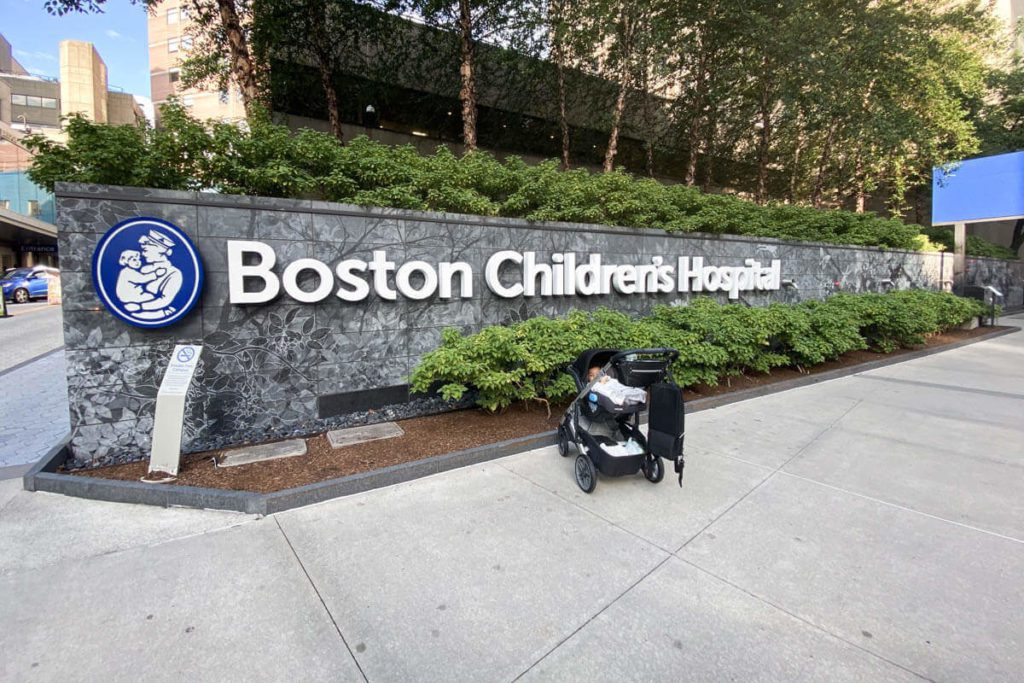
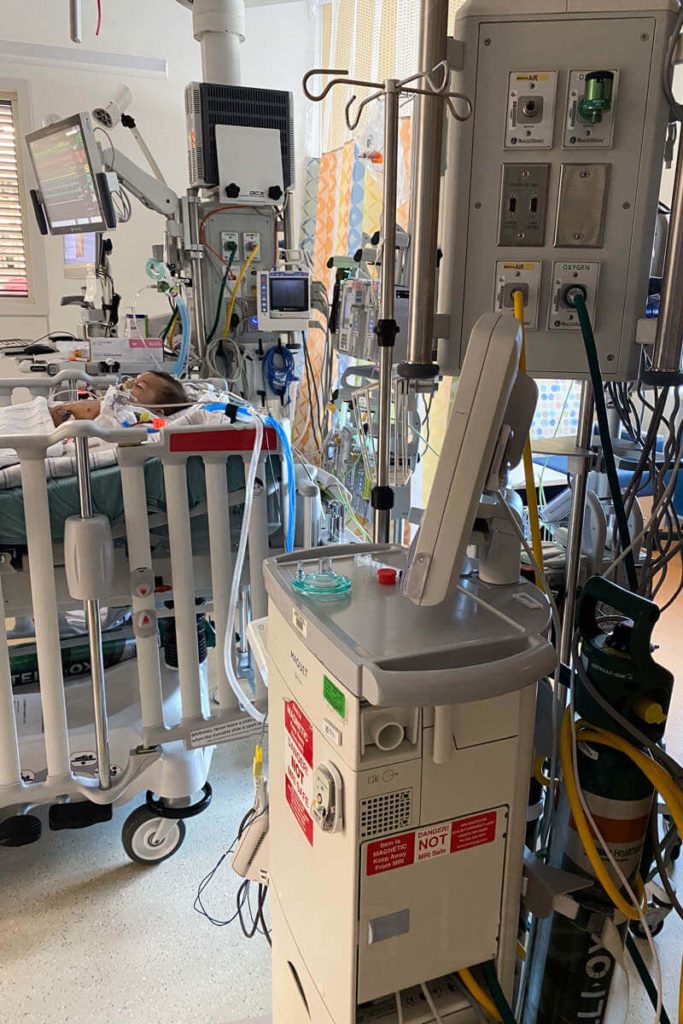
CHD Awareness Gaining Momentum
Awareness about heart disease in adults is generally high. Heart Month helps continue to highlight the incidence of acquired heart disease – community support, treatment options, and even how to prevent it.
With so much focus on heart health and heart disease in February, it’s the perfect time to slip on your warrior shirt and heart pin and get your bullhorn out for CHD awareness efforts.
Read more: Clothes and Things for Heart Month & Support CHD Small Businesses
As technologies and education improve, CHD detection and diagnosis continue to advance. More babies are diagnosed with CHD prenatally than ever before, so the discussions now begin earlier. Through social media, more parents of heart warriors and CHDers themselves are connecting, telling their stories, and raising CHD awareness.
For myself, and many other heart moms, connecting with other heart parents helps guide us through this CHD journey. Following other warrior’s journeys and talking with their parents gives me support and hope. It makes such a difference in my ability to navigate the difficulties. CHD awareness matters.
Once Congenital Heart Disease impacts your family, you can’t not care about it. CHD is unfair. If your family is affected by it, you might be moved to fight for better outcomes for those affected. And this begins with raising awareness of CHD.
This was my third year celebrating Heart Month. I was thrilled to see more people wearing red, learning and talking about CHD this year. Let’s keep the momentum going!
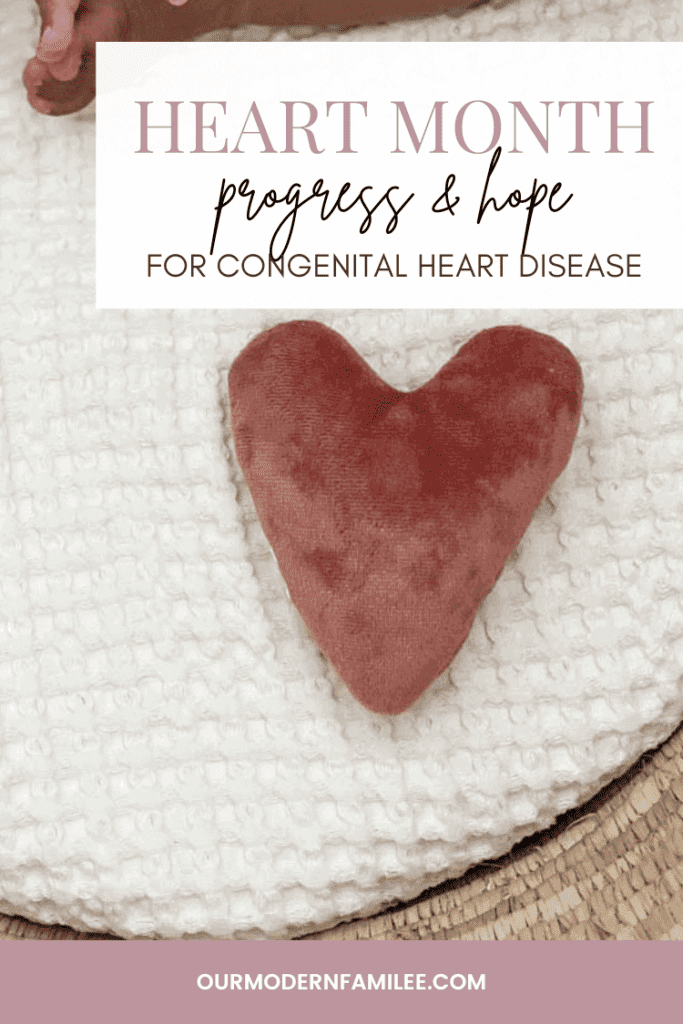
More CHD Awareness = More CHD Funding = More CHD Research
Government funding allocated for CHD research is grossly less than that of other diagnoses with similar, and even lesser, incidence rates. We are grateful for any and all funding, but we need more. CHDers deserve more.
As CHD Awareness increases we’re seeing slightly more CHD research funding. These dollars are mostly coming from individuals and non-profit organizations.
- U.S. Senators Todd Young and Dick Durbin recently introduced the Congenital Heart Futures Reauthorization Act of 2024 to reauthorize funding ($10 million annually through 2029) for the CDC to continue its CHD research efforts. This builds on their original law passed in 2018.
- The Children’s Heart Foundation announced funding of over $1.4 million for new CHD research and scientific collaboration efforts.
- The American Heart Association and The Children’s Heart Foundation have jointly funded nearly $600,000 to support five prominent scientists in continuing their CHD research.
- To support larger-scale CHD research, The CHF committed $900,000 in funding over the next three years to support research efforts led by Cardiac Networks United, a collaborative pediatric and congenital cardiovascular network.
Headway in Congenital Heart Disease Research
Congenital Heart Disease research efforts have directly led to increased survival rates for those with CHD. Overall, CHD survival rates have increased by nearly 30% in the last 10 years.
“The outlook for children who have congenital heart defects is much better today than it was in the past. Advances in diagnosis and treatment allow most of these children to survive to adulthood, which means that more and more adults are living with congenital heart disease.” – NIH
For the first time, there are now more adults living with CHD than children. Why is this significant? Because previously, too many children were dying before they reached adulthood due to their Congenital Heart Disease so there were always more children with CHD than adults. In the 1950s tragically only 20% of children born with critical CHD survived until 18 years old.
Now, however, thanks to research and advancement, more CHD children are surviving to adulthood. So there are an increasing number of adults living with CHD, enough that they surpass the number of children living with CHD. Today, nearly 70% of those with critical CHD, and 95% of those with non-critical CHD, survive to 18.
Between 1979 and 1993, about 67% of infants with critical CHDs survived to their first birthday. Now, of those born with a critical CHD, about 75% survive to one year old. We need to keep increasing this number.
Source: CDC
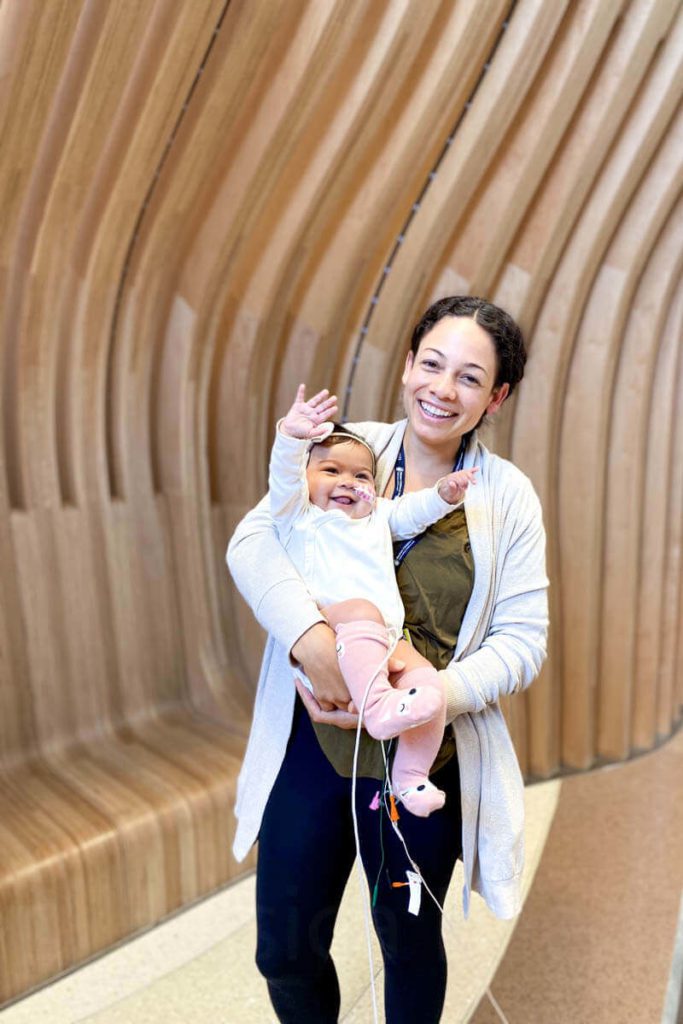
Looking Ahead: Hope for CHD Patients
There is hope for those with CHD. We continue to see medical and technological advancements that help improve Congenital Heart Defect repairs and CHD management. We see the statistics and hear the stories of miracles.
Here are some recent CHD advancements and current projects that show progress and offer hope.
- Infant deaths due to critical Congenital Heart Defects have declined thanks to a newer requirement for screening for critical CHD by using pulse oximeters to test a newborn’s oxygen saturation.
- In a 2017 study, by using pulse oximetry, there was a 33% decline in US infant deaths from critical Congenital Heart Defects.
- Because of this study’s results, 49 states and the District of Columbia now require screening for critical CHD through pulse oximetry for newborns. California, only, mandates it be available but does not require the test to be performed.
- In 2022, a CHD newborn received the first-ever partial heart transplant. It was a success and he’s now an active and thriving toddler.
- This brave baby and his parents took a leap of faith and paved the path for the additional 12 partial transplants since then.
- HeartWorks is committed to finding a cure for CHD. They are pioneering novel stemcell therapies to delay the need for a heart transplant in CHD patients.
- Currently, they have multiple clinic trials running, including one using stem cells to try to strengthen the heart to better treat CHD.
- Heart valve technology continues to develop and advance – different materials, sizes, and functions – to help improve and prolong the valve’s life. More recently there has been the development of pulmonary valves that can grow with the patient.
- This matters for pediatric patients because typically they would need to have open-heart surgery to replace new larger valves as they outgrow their old ones. The idea with the growing valves is they can increase the same valve via a balloon catheterization procedure which will last much longer before needing a full replacement thereby reducing the number of invasive procedures necessary.
- The Autus Valve invented by Boston Children’s Hospital is currently in clinical trials.
- The IRIS Valve is in development by CHOC Heart Institute and the University of California, Irvine.
- Boston Children’s has been working on being able to map cardiac conduction tissue, which is invisible to the naked eye.
- Mapping the conduction tissue helps reduce the rates of heart block, a type of arrhythmia, thereby reducing the amount of pacemakers needed.
- One technique uses confocal microscopy and the other electrophysiology mapping tools.
- Leadless pacemakers are now seeing improved success in pediatric patients requiring pacing than before.
- Leadless pacemakers can help minimize or eliminate certain complications caused by conventional pacemakers.
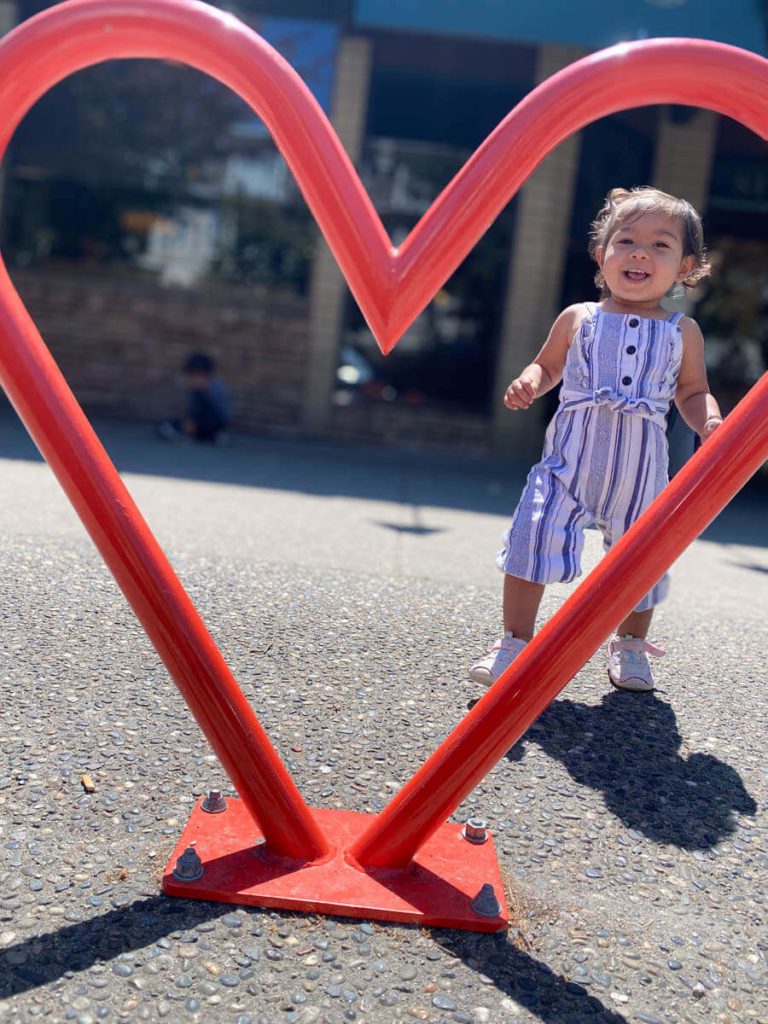
Too many babies pass due to critical CHD before their first birthday. 80-85% of CHD cases are caused by unknown reasons. It’s nearly impossible to try to reduce incidence rates when we don’t understand why CHD happens in the first place.
While we continue to see improvements, Congenital Heart Disease is extremely prevalent, yet underfunded. There is so much more room for improvement.
We demand better, we call for more funding. Help us raise CHD awareness. Help us fight for a cure for CHD!
Closing out Heart Month 2024
We follow fellow heart warriors’ journeys and cheer them on. We celebrate and we grieve. We learn from those gone too soon. And we hang on to the light for a better future.
Heart Month 2024 has given me more hope for CHD awareness efforts and its future impact. There’s a clear connection between CHD research and increasing survival statistics. More awareness is essential to garnering more funding which is critical to advancing treatment options and outcomes for those with CHD.

